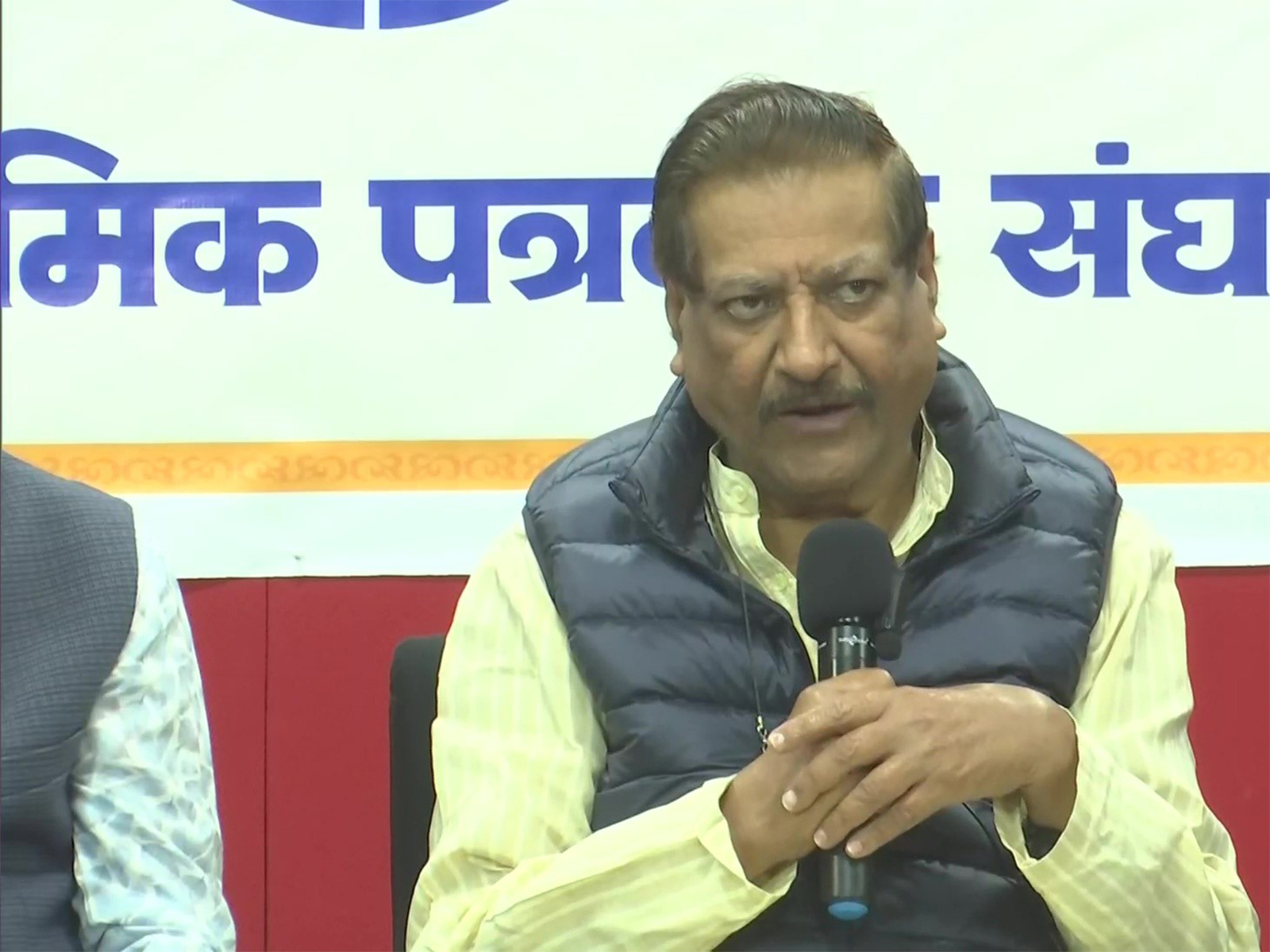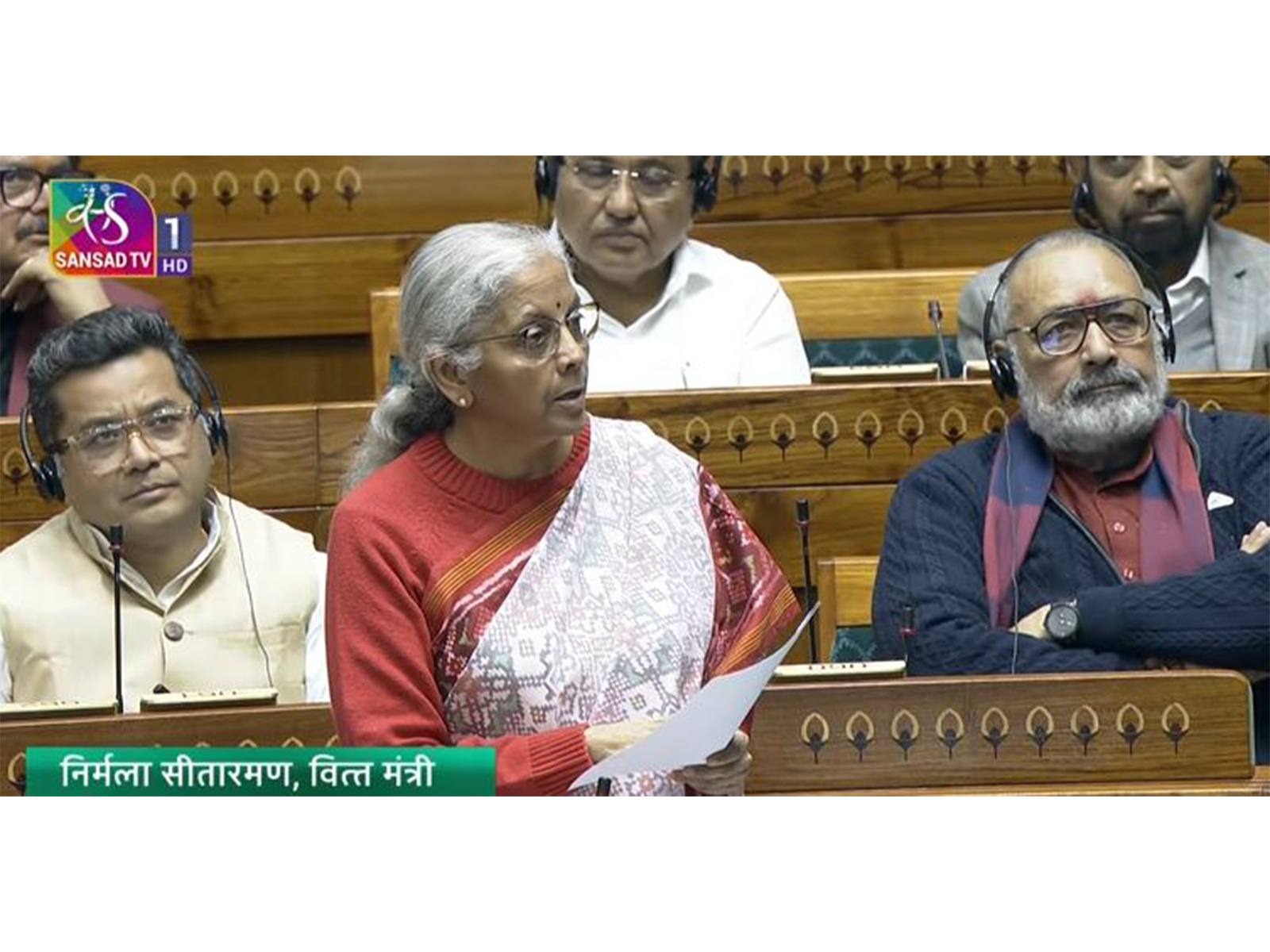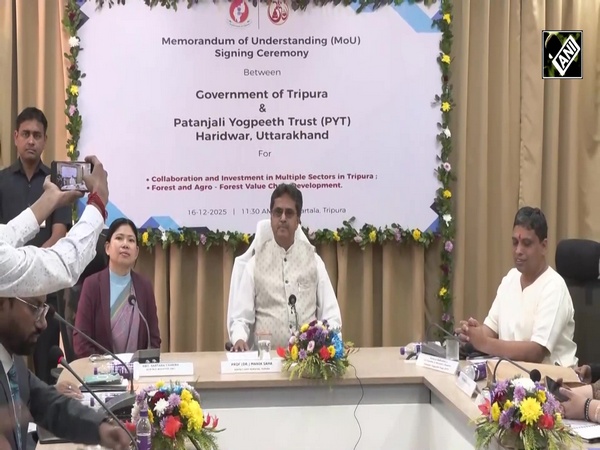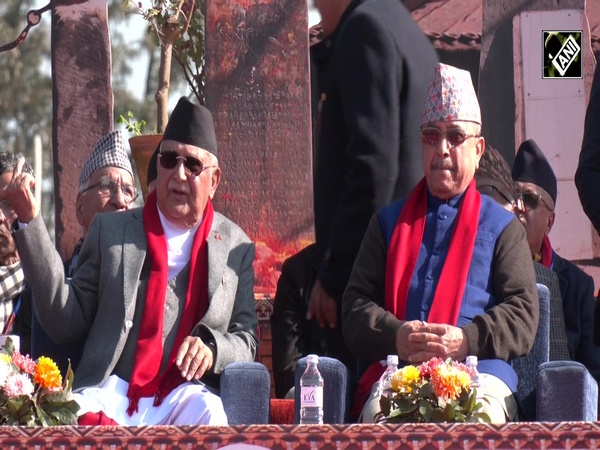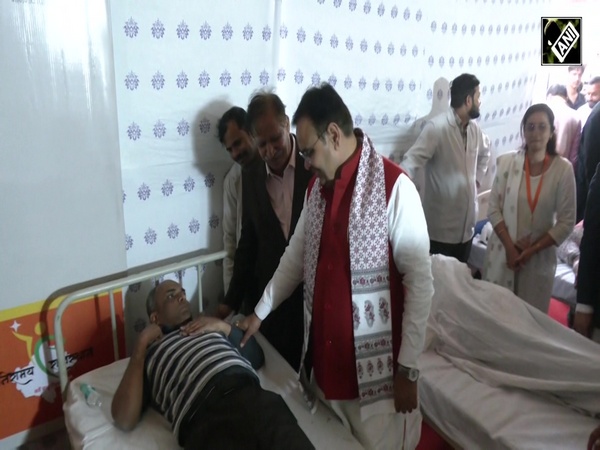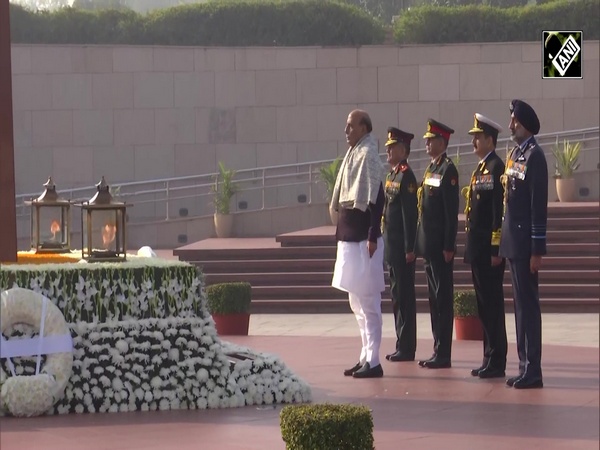On-screen warning against tobacco will help save lives, say experts
Jan 11, 2024

By Shalini Bharadwaj
New Delhi [India], January 11 : Health experts and international wrestler Sangram Singh joined hands to advocate for the protection of India's youth against the tobacco menace.
On the occasion of National Youth Day, top health experts and youth icons converged to emphasise the critical need to safeguard India's youth from the clutches of tobacco addiction.
They underscored the importance of implementing tobacco warning rules on Over-the-Top (OTT) platforms, akin to the regulations previously enforced for film and television. Additionally, there were calls for the prohibition of surrogate advertisements, point-of-sale tobacco ads, and smoking zones.
Sangram Singh, who is an international wrestler and youth icon, said, "This young population is particularly vulnerable to the hazards of tobacco; implementing tobacco warnings is crucial."
Alok Thakar, Head, National Cancer Institute, Government of India; Urvashi Prasad, Director of NITI Aayog; Uma Kumar, Founder Head of Rheumatology at AIIMS, Delhi; Chandrakant Lahariya, a distinguished health policy expert; and Dodul Mondal, Director of Radiation Oncology at Max Super Specialty Hospital, Saket, also joined hands.
The health experts emphasised the critical importance of shielding the young population from the allure of tobacco during the webinar titled 'Viksit Bharat-Tambaku-Mukt Bharat,' organised by 'Tobacco Free India,' a citizens' initiative, on Thursday.
Epidemiologist and public health expert Chandrakant Lahariya referred to findings from the GYTS-India Survey conducted by the Union Health Ministry and said, "Approximately one-fifth of individuals aged 13-15 had used some form of tobacco product, and this proportion was even higher among older age groups."
Lahariya emphasised that on-screen tobacco warnings not only have a direct impact on youth but also result in a reduction of tobacco-related scenes in the media. He also cited the Health Ministry's report on India's tobacco-free film and television policy, illustrating the positive outcomes of implementing tobacco warnings.
He said, "Following the implementation of these warning rules in films, the prevalence of smoking scenes in Indian cinema decreased from 89 percent in 2005 to 48 percent in 2015, underscoring the effectiveness of regulatory measures."
Lahariya also stressed that even a 10 per cent reduction in tobacco use among these individuals through warning rules could potentially save up to 20 million lives in the long run.
Alok Thakar brought attention to "the alarming surge in cancer cases associated with tobacco consumption".
He said, "In the past year, there has been a proliferation of surrogate advertisements, particularly for smokeless tobacco products."
Thakar expressed his appreciation for "the government's proactive measures aimed at controlling media exposure, as they glamorise tobacco and entice young people to engage in its use."
Urvashi Prasad, Director of NITI Aayog, emphasised the profound damage tobacco inflicts on well-being, with a definite link to diseases like cancer. She urged adopting a healthier lifestyle and commended the government's initiatives.
Uma Kumar, Founder Head of Rheumatology at AIIMS, New Delhi, noted that the median age for initiating tobacco product use is between 10 and 11.5 years, putting young individuals at risk of life-threatening diseases like cancer. She called upon public figures to responsibly wield their influence and cited the Global Youth Tobacco Survey, revealing that 52 percent of school-going children aged 13-15 had observed anti-tobacco messages in films and TV.
It bears recall that the Government of India extended COTPA rules to OTT platforms, effective September 1, 2023. These rules mandate that all OTT platforms, including Netflix, Amazon Prime, Disney+, Hotstar, Jio Cinema, etc., display anti-tobacco health spots, prominent static messages, and audio-visual disclaimers regarding the ill effects of tobacco. This move received commendation from various public health organisations and experts, including the WHO, positioning India as a global leader in tobacco control measures.

